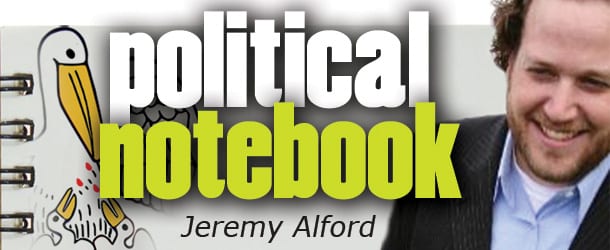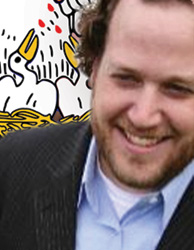As the state grapples with mounting recovery expenses and looks to the federal government for financial assistance, economists are also expecting what could be a minor uptick in tax collections in the wake of the flooding in south Louisiana.
That spike in revenue, however, won’t be significant enough to address the immediate fiscal challenges being faced by the state. Future deficits are expected, and $1.5 billion in tax revenue is set to expire in 2018.
Hurricane Katrina offers somewhat of a guide, although the August flooding will not produce near the same amount of recovery spending. After making landfall in late August, the Revenue Estimating Conference met in October to lower expectations for incoming cash for the state, only to see a spike in sales tax and income tax collections soon after.
LSU economist and REC member Jim Richardson said the REC will gather next at its regularly scheduled meeting some time in September, but he doesn’t see a need for a revision at this time.
“For Katrina, we didn’t know what the impact on business was going to be and we chose to be prudent,” Richardson said.
Economists in Louisiana know that a bounce in tax collections can be expected in the months following a major flooding event. “By October or November, you will see numbers moving up,” said Richardson, adding that collections should be back to normal by the summer of 2017.
As people start to buy new sheetrock, carpeting and vehicles, sales tax collections will start to increase. As recovery work picks up, so will income tax collections.
To what extent these collections will increase and fill the state’s coffers will depend largely on public programs and state and federal assistance. Hurricane Katrina caused a major spike because more of the affected population had flood insurance and access to federal money. In comparison, the recent flooding will have a smaller footprint, due largely to the number of residents without flood insurance.
Some areas, such as East Baton Rouge Parish, will bounce back sooner than others, Richardson said. “Overall what you will find is that East Baton Rouge will be back to normal fairly quickly. You still have businesses functioning there, and more are coming back online.
A Policy For Flooded Schools
While state tax collections will eventually spike a bit due to last month’s flooding and the subsequent rebuilding efforts, for the areas that were significantly hit there will actually be a dip in local sales taxes because of a lack of commerce.
So in places like Livingston Parish, not only will the school boards have to spend money on restoring schools; they’ll also get less tax revenue than anticipated.
Lawmakers and lobbyists agree that there may be an opportunity for class-size waivers. But the total number of educational days required can’t be changed.
That said, there could be a major policy debate brewing over easing up on the accountability system.
Here’s the key question: Should displaced students and teachers be taking the same standardized tests as others around the state who have experienced no disruptions? Next year’s legislative session could answer that question.
In terms of funding, the floods came at a terrible time. The 2016-17 budget reduced public school funding by $24 million from last year.
Public school boosters have been quick to point to the fact that vouchers were increased by 14 percent. It’s a signal that there could be competition for recovery dollars if privately run charter schools from Baton Rouge and Lafayette decide to seek tax money for flood-related expenses.
Ideas For Fiscal Reform Session
The task force charged with making tax and budget recommendations for next year’s regular session should have its report ready for legislative leaders by the end of the month.
The original deadline for the Task Force on Structural Changes in Budget and Tax Policy was Sept. 1, as stipulated in a resolution adopted by lawmakers earlier this year. But members sought more time from the Legislature after the recent flooding in south Louisiana and got a new Sept. 30 deadline.
One issue that’s taken a backseat to the splashier topics of taxes and the budget is unfunded accrued liability, referred to as the UAL. In simple terms, it’s the debt associated with the state’s retirement systems. More to the point, it’s the difference in the amount of assets the systems have and the amount of money the government has promised to pay its employees in the future.
Paul T. Richmond, the actuary for the legislative auditor, recently told the task force that Louisiana’s UAL is $18 million. That figure has some task force members wondering whether the UAL should be treated as a separate budget item during legislative sessions.
Richmond told the task force the problem with the retirement systems isn’t the overall design of their plans, but rather that UALs have been allowed to accumulate in the past due to inaction by state officials.
Retirement systems are able to gain revenue through investments. But that option is unlikely to help address the UAL problem.
The task force was advised that it would be best to have larger contributions directed to the systems, with a gradual decline thereafter, as opposed to smaller contributions followed by a pattern of increases.
Who ends up paying for the higher contributions; and how the Legislature reacts to such a proposal; are just two of the unknowns that will likely be addressed in the task force’s report and next year’s fiscal reform session.
Acadians Super PAC Emerges
Consultant Bill Skelly is back with another super PAC this cycle after running one last year to support Public Service Commissioner Scott Angelle’s bid for governor.
He’s sticking with Angelle, though, and has formed the Love For Louisiana PAC in the 3rd Congressional District race.
In an interview, Skelly laughingly said the name had nothing to do with one of Angelle’s taglines from the 2015 election: “The last name is Angelle. It has two L’s. It stands for ‘Loves Louisiana.’”
The Bautsch Group has been retained to oversee fundraising. The super PAC is currently shopping for a media consultant.
Super PACs are political action committees with a special designation that allows them to raise unlimited amounts of money with no giving caps whatsoever.
The Run-off Question In The 3rd
While Scott Angelle entered the 3rd Congressional District race with enviable name ID, the crowded field may not allow him to capture victory outright in the primary.
So who is capable of making the run-off with him? No single candidate has caught fire in the polls, as Angelle continues to eat up all the oxygen in the room.
With eight Republicans in the race fighting over the same share of the electorate, general political interest has slowly turned to Democrat Larry Rader. One of two Democrats in the race, Rader is the only black candidate running, and the only one with deep roots in the party. He owns an insurance business in New Iberia and is currently president of the Port of Iberia.
Rader is actively campaigning and could benefit from the ground games being put together by Democrats more interested in the presidential and U.S. Senate races. His campaign may be one to keep tabs on in Acadiana.
The 3rd District is 71 percent white and 25 percent black.
Mobile Precincts Possible In November
Hurricane Katrina offers yet another model for what to do in terms of the upcoming elections.
The good news is that not a single voting machine was touched by floodwaters. The bad news is that some voting precincts have been badly damaged.
Secretary of State Tom Schedler is preparing for the possibility of using mobile voting precincts in November, similar to what was done following the 2005 hurricane season. That would allow voters to show up where they usually do, rather than having to find a relocated voting precinct.
Tents from the National Guard could be set up in parking lots and equipped with generators and portable toilets.
But as of now, Schedler’s office is still assessing the situation.
Elections As Homeland Security?
Before he traveled to Louisiana to survey the flood damage and work with Gov. John Bel Edwards recently, U.S. Homeland Security Sec. Jeh Johnson was floating the idea of designating electronic voting machines as “critical infrastructure” as a way to combat potential cyberthreats.
After Democratic campaign systems were hacked, Johnson was asking whether voting systems should be on par with power grids, for example, in terms of protection.
Secretary of State Tom Schedler took part in a call to state officials around the country recently, and asked Johnson if there was a credible threat. The answer was no, according to coverage in The Conservative Review.
Some election officials around the nation aren’t warming to this idea, worrying that they could lose some control to the federal government. Also, some election officials argue that most electronic voting machines aren’t connected to the internet; they are stand-alone machines.
For more Louisiana political news, visit www.LaPolitics.com or follow Jeremy Alford on Twitter @LaPoliticsNow.














Comments are closed.